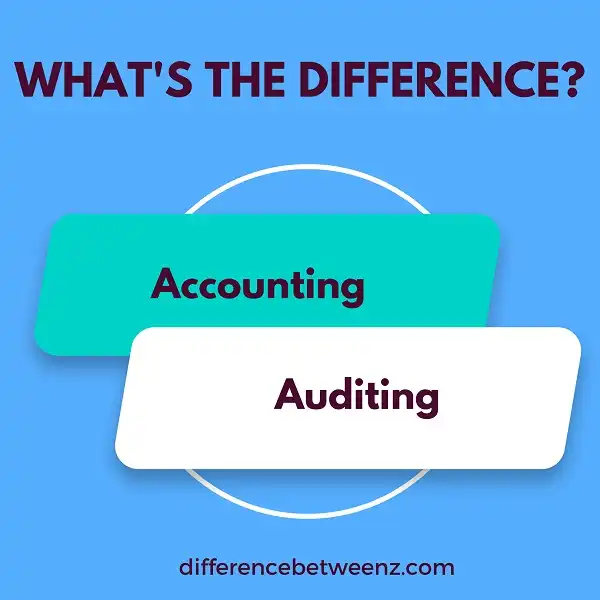Accounting and auditing are both important aspects of any business. However, they are two very different disciplines. In this blog post, we will explore the key differences between accounting and auditing. We will also look at the roles each profession plays in a business. Finally, we will discuss why it is important to understand the distinction between these two professions.
What is Accounting?
- Accounting is the process of recording, classifying, and summarizing financial transactions to provide information that is useful in making business decisions.
- The accounting function in a business is responsible for keeping accurate records of all financial transactions and preparing financial statements. Accounting data is used to make decisions about pricing, investment, and other strategic decisions.
- Accounting information can also be used to assess the financial health of a business and to make predictions about future financial performance. Without accurate and timely accounting information, it would be difficult for businesses to make informed decisions about their operations.
What is Auditing?
Auditing is an objective examination and evaluation of the financial statements of an organization to make sure that they are free from material misstatement and are in accordance with generally accepted accounting principles.
- Auditing also provides a way to evaluate the effectiveness of an organization’s internal controls. Auditors may be either internal or external to the organization.
- The audit process usually starts with a meeting between the auditor and management to establish the scope and objectives of the audit. The auditor then plans the audit, performs tests, and prepares a report detailing the findings.
- Auditors typically issue one of three types of opinions: unqualified, qualified, or adverse. An unqualified opinion indicates that the financial statements are free from material misstatement and are presented fairly in accordance with generally accepted accounting principles.
- A qualified opinion indicates that there are some limitations on the scope of the audit or that the financial statements are not presented fairly in accordance with generally accepted accounting principles.
An adverse opinion indicates that the financial statements are materially misstated or not presented fairly in accordance with generally accepted accounting principles.
Difference between Accounting and Auditing
Accounting and auditing are two essential functions in any business. Accounting is the process of recording, classifying, and summarizing financial transactions to provide information that is useful in making business decisions.
- Auditing is the process of independently verifying the accuracy of financial statements and ensuring that they comply with generally accepted accounting principles.
- Accounting is primarily focused on providing information to internal users, such as managers and shareholders. In contrast, auditing is primarily focused on providing assurance to external users, such as regulators and creditors.
- As a result, accounting is often referred to as the “language of business,” while auditing is often referred to as the “watchdog” function. Both accounting and auditing are critical components of any organization, and they work closely together to ensure the accuracy of financial reporting.
Conclusion
While the two terms are often used interchangeably, there is a clear distinction between accounting and auditing. Accounting is the process of recording financial transactions, while auditing is the verification of those records. An auditor will look for any discrepancies or errors in the financial statements to ensure that they are accurate. If you’re looking for someone to audit your company’s books, be sure to contact an experienced accountant or auditor who can help you get peace of mind about your finances.


